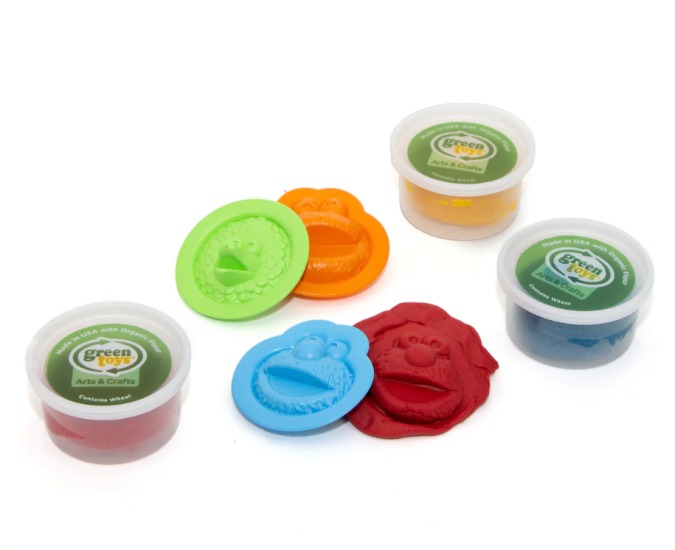
Organic Playdough Gluten Free A Healt hier Alternative For Sensory Play
Playdough has always been a beloved toy for children. It stimulates their creativity, enhances their fine motor skills, and provides a sensory experience that’s both fun and educational. But for some children and parents, traditional playdough isn’t an option due to allergies or dietary restrictions. Enter “organic playdough gluten free.” This alternative offers a safe and healthy way to engage in hands-on fun without the worry of gluten exposure.
The Importance of Gluten-Free Options
Why Go Gluten-Free?
Gluten is a protein found primarily in wheat, barley, and rye. While most people can consume it without any issues, a significant minority suffer from conditions like celiac disease, wheat allergies, or non-celiac gluten sensitivity. For them, even minimal exposure to gluten can result in severe reactions ranging from digestive discomfort to serious health issues. Organic playdough gluten free ensures that these individuals can engage in play without the worry of cross-contamination.
Benefits of Organic Ingredients
Prioritizing Health and Safety
Choosing organic playdough ensures that the product is free from harmful chemicals, pesticides, and synthetic dyes that are often found in conventional playdough. This not only reduces the risk of exposing children to potential toxins but also supports sustainable and environmentally-friendly farming practices.
Making Your Own Organic Playdough at Home
An Easy and Fun Activity
For parents who wish to take things into their own hands, making organic playdough gluten free at home is a feasible option. Not only is this a cost-effective method, but it also allows parents to customize the playdough to their children’s preferences, whether in terms of color, texture, or even scent.
Ingredients like rice flour, cornstarch, and organic food coloring can be combined to create a dough that’s just as malleable and vibrant as the store-bought version. Plus, it’s a fantastic way to involve kids in the kitchen, teaching them about measurements, ingredients, and the joy of creating something with their own hands.
Commercial Organic Gluten-Free Playdough Brands
Taking the Guesswork Out
For parents who don’t have the time or resources to make playdough at home, several brands on the market offer organic playdough gluten free options. These brands prioritize safety and quality, ensuring that their products are suitable for children with dietary restrictions. By supporting these brands, parents can trust that they’re providing a safe, allergen-free experience for their children.
The Broader Impact of Organic and Gluten-Free Choices
More than Just Play
By choosing organic playdough gluten free, parents and educators send a clear message about the importance of inclusivity and safety. This choice not only safeguards children with dietary restrictions but also promotes a healthier environment and supports industries that prioritize sustainable and ethical practices.
Organic Playdough Gluten Free: Delving Deeper into its Benefits and Making
As parents and educators become increasingly conscious of the materials and foods to which children are exposed, the demand for safer, more natural alternatives has grown. One such evolution is in the realm of playdough—a classic childhood favorite. Taking our previous discussion further, let’s delve deeper into the significance and details of organic playdough gluten free.
Understanding Gluten and its Implications
Why is Gluten a Concern in Playdough?
Many might wonder why gluten, typically associated with dietary concerns, is even a topic of discussion in the context of play. The concern arises due to instances where children, especially younger ones, may ingest playdough or touch their mouths after playing. This could lead to potential ingestion of gluten, a problematic scenario for those with sensitivities or allergies.
Advantages of Organic Components
Nurturing Young Skin
Young skin is highly absorbent and sensitive. Organic playdough gluten free reduces the risk of skin irritations or allergies from chemicals. Many children spend prolonged hours kneading, rolling, and playing with the dough, making it vital that what they touch is as natural as possible.
Sustainability and Ethics
By supporting organic products, you’re voting for a system that shuns pesticides, emphasizes crop rotation, and promotes biodiversity. This has a ripple effect on the planet, supporting ecosystems and promoting cleaner air and water.
Home-made Organic Playdough: Recipe and Tips
A Simple Recipe:
Ingredients:
- 2 cups organic rice flour
- 1 cup salt
- 1 cup cold water
- 1 tbsp organic olive oil
- Natural food coloring or vegetable juices (like beetroot for pink/red)
Procedure:
- Mix rice flour and salt in a large bowl.
- In a separate bowl, mix cold water and olive oil. Add natural coloring if desired.
- Gradually add the wet mixture to the dry ingredients, stirring continuously until a dough-like consistency is achieved. If the mixture is too wet, add more rice flour; if too dry, add a bit more water.
- Knead the dough on a flat surface for about 5 minutes until smooth.
- Store in an airtight container.
Tips:
- You can add essential oils like lavender or chamomile for a calming scent.
- Vegetable juices can be used for natural coloring—spinach for green, carrots for orange, and so on.
Economic Impact of Choosing Organic and Gluten-Free
When consumers prioritize organic playdough gluten free, they are also supporting the organic farming industry. This means that the more demand for such products, the more farmers will be incentivized to adopt organic farming practices. This can lead to a more sustainable agricultural system and potentially even lower prices for organic products in the long run due to increased supply.
Closing Thoughts
Organic playdough gluten free isn’t just a product; it represents a conscious choice—favoring health, inclusivity, sustainability, and safety. As consumers, educators, and parents, we have the power to shape the market and, by extension, the world our children grow up in. Making informed choices about even seemingly minor products like playdough can have lasting implications for our children and the planet.







